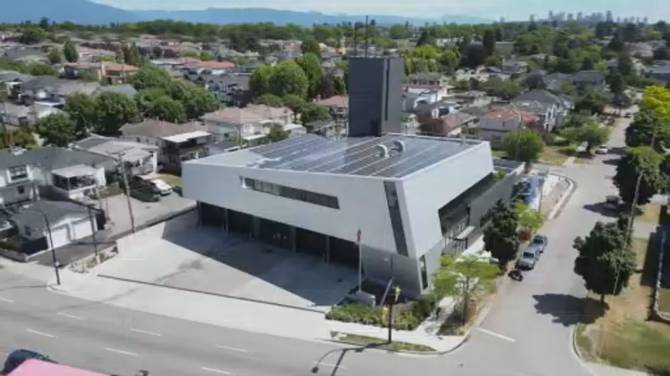A group has formed in British Columbia to ensure that energy remains inexpensive and reliable.
The BC Coalition for Affordable Dependable Energy (BC CADE) started on Wednesday.
The director of BC CADE, Bill Tieleman, stated that the group is gaining support from various sectors such as small and large businesses, labor, and non-profit organizations.
Tieleman expressed concerns that the early enforcement of the Zero Carbon Step Code regulations by municipalities will significantly increase energy costs for the public and businesses, and lead to a greater reliance on electricity-based energy.
The Zero Carbon Step Code was introduced on May 1, 2023, as an update to the BC Building Code.
The province has announced that by 2030, new constructions must be zero carbon and should move away from natural gas.
Currently, BC Hydro estimates that only 19% of B.C.’s total energy is provided by electricity, according to Tieleman.
Tieleman pointed out that despite BC Hydro having to import $500 million worth of electricity last year due to droughts, it is important to make sure that British Columbians have options for supplying energy for their homes, food, and businesses, and not to restrict critical energy sources for the province.
The founding members of the coalition include the BC Restaurant and Food Services Association, the Surrey Board of Trade, the Greater Vancouver Board of Trade, and Restaurants Canada, among others.
The goal is to inform British Columbians about the decisions made by municipal governments, which have already limited residents’ energy choices in cities such as Vancouver, Nanaimo, Richmond, and Victoria, without much input from the affected citizens and businesses, according to Tieleman.
Members of the coalition, like the BC Restaurants and Foodservices Association, emphasized the importance of natural gas and renewable natural gas for their respective industries.
Ian Tostenson, CEO and president of BC Restaurants and Foodservices Association, stated that natural gas and eventually renewable natural gas are crucial and affordable for their $18-billion restaurant industry, fueling the diversity and ethnicity of kitchens throughout B.C. He also warned that the industry would face significant challenges if it shifted to electricity.
The recent decision in Nanaimo to accelerate zero carbon requirements in new buildings was met with opposition from organizations like Fortis BC.
Councillors in Nanaimo argued that swift action is necessary to reduce emissions.
However, this decision faced opposition, including from Fortis BC.
The newly formed BC Coalition for Affordable Dependable Energy emphasizes the importance of maintaining affordable and reliable energy for homes and businesses.





